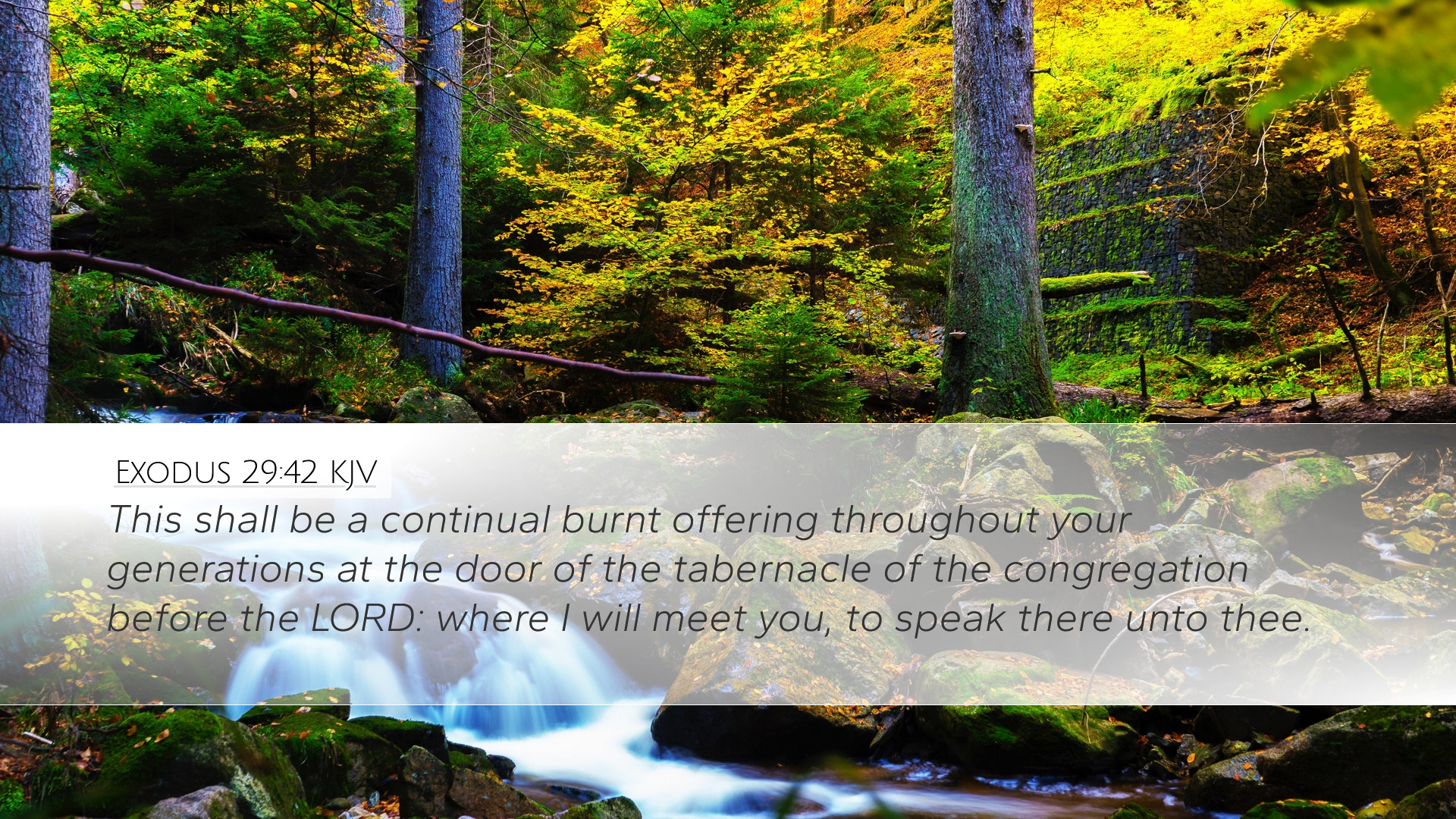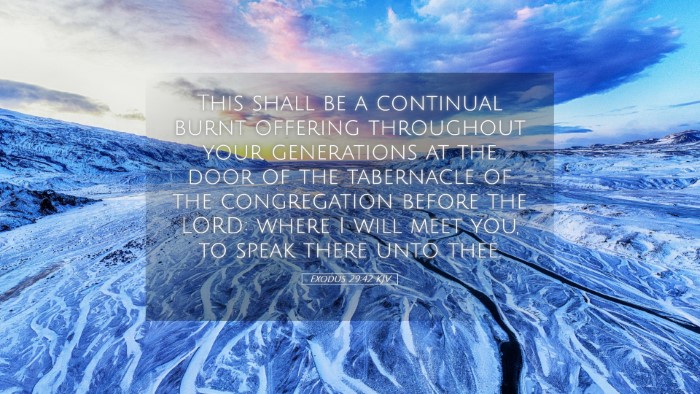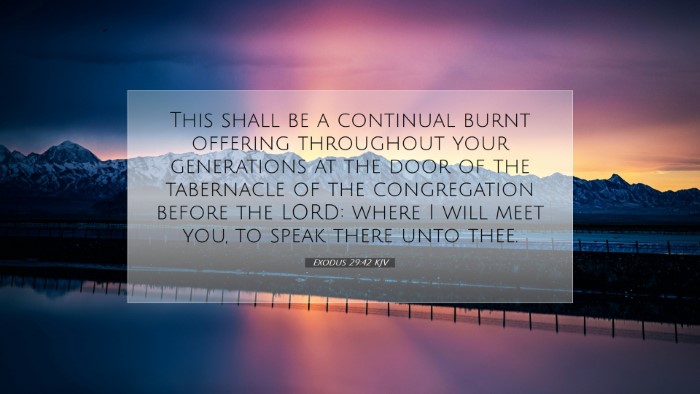Commentary on Exodus 29:42
Verse Reference: Exodus 29:42 - "This shall be a continual burnt offering throughout your generations at the entrance of the tent of meeting before the LORD, where I will meet with you, to speak to you there."
Introduction
The directives in Exodus 29:42 serve as a foundational channel for understanding the continuity of worship in Israel's relationship with God. This verse underscores the necessity of the burnt offering, marking a perpetual commitment to seek the divine presence. This exploration will integrate insights from notable public domain scholars including Matthew Henry, Albert Barnes, and Adam Clarke, each contributing to a holistic understanding of this sacred ceremony.
Significance of the Burnt Offering
1. Definition and Purpose
The burnt offering, or "olah," signifies complete dedication to God. As noted by Matthew Henry, it represents total surrender, wherein the entire animal is consumed in the flames, reflecting the worshiper's commitment and devotion. This act, performed consistently, symbolizes acknowledgment of God’s sovereignty and man's need for atonement.
2. Perpetuity of the Offering
Albert Barnes emphasizes the importance of continuity in worship. The phrase "throughout your generations" indicates that this practice should not be abandoned but passed down through Israel's lineage. Each generation thus reaffirms its covenantal relationship with the Lord, fostering a community centered around the worship of Yahweh.
The Tent of Meeting
1. The Context of Divine Encounter
Exodus 29:42 situates the burnt offering at the entrance of the tent of meeting. Adam Clarke explains that this location is critical, symbolizing where heaven and earth meet. The tent, or "Mishkan," serves as a tangible reminder of God's dwelling among His people, reinforcing the idea that worship is not merely ritualistic but relational.
2. Theological Implications
This text reflects deep theological implications regarding God's desire to communicate with humanity. According to Henry, the mention of God "meeting" with His people illustrates His willingness to enter into fellowship with them. Worship becomes a divine dialogue, underscoring the intimacy of the relationship between the Creator and His creation.
Interpretive Insights
1. The Role of the Priesthood
Henry expounds on the role of the priests who perform these offerings. Their duties signify the intermediary position between God and the people, for it is through them that atonement is sought. This system of priestly mediation not only foreshadows Christ's ultimate sacrifice but also illustrates God's method of maintaining communion with His people.
2. Application for Contemporary Worship
Barnes posits that while the formal practices of Old Testament worship have transitioned, the principles underlying them remain pertinent. Contemporary worship should reflect the same heart of commitment and the desire for divine encounter as established in the burnt offerings. Pastors and leaders are encouraged to cultivate environments that invite God's presence.
Conclusion
In summary, Exodus 29:42 encapsulates a profound theological framework about worship, sacrifice, and God's unyielding desire for relationship with His people. The insights garnered from Matthew Henry, Albert Barnes, and Adam Clarke highlight the verse's rich implications, offering a guide for both historical understanding and contemporary application.
- Perpetual Commitment: The continual nature of burnt offerings reinforces the idea of ongoing devotion.
- Divine Meeting Place: The tent symbolizes the sacred space where God communes with man.
- Heritage of Worship: The practices of the past inform the worship of today, emphasizing continuity in faith.
- Intercessory Role: Priests act as intermediaries, a precursor to the fulfilled ministry of Christ.
The call for disciples today is to engage in worship that is meaningful, intentional, and reflective of the deep-rooted traditions handed down through generations. As we approach God in this way, we embody the essence of what it means to live in covenant relationship with Him.


